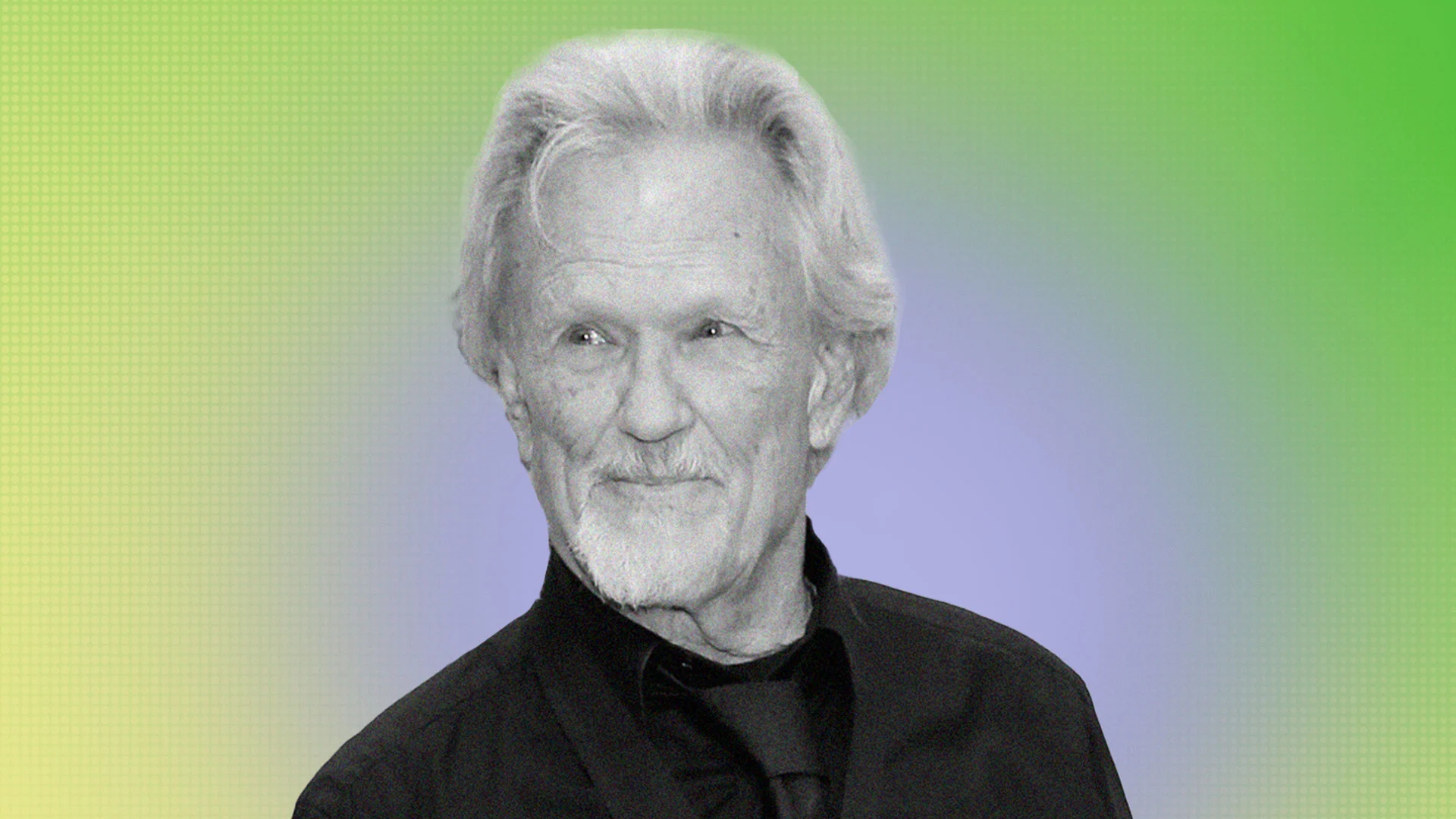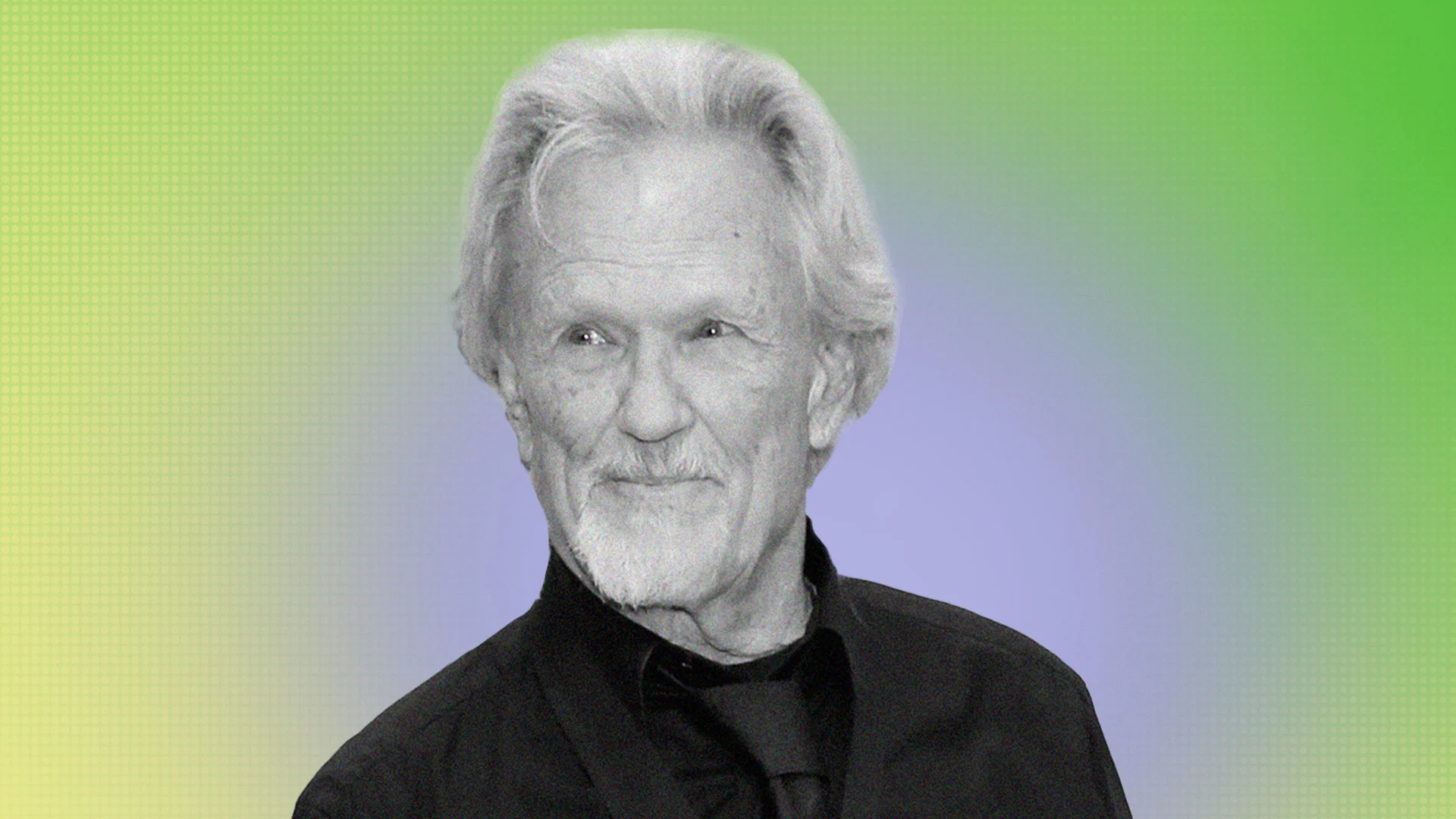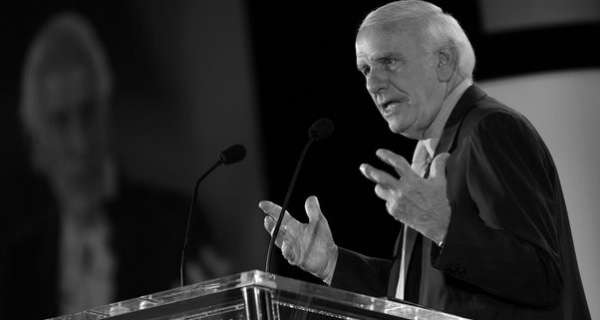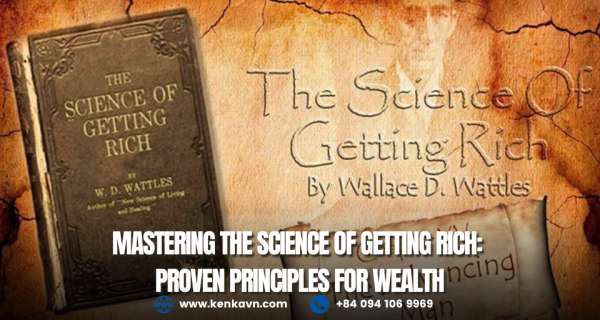Kris Kristofferson. (Photo: inc.com)

Mr. Kris Kristofferson, star of both country music and Hollywood, died at 88 on September 28. He wrote many of the 1970s' most iconic songs, from "Me and Bobby McGee" to "Help Me Make It Through the Night." He won multiple Grammys and an Oscar for his songwriting, and also a Golden Globe for his acting in A Star Is Born.
Back in 1999, 25 years ago, in an interview on the NPR program Fresh Air, Kristofferson gave some of the best advice I've ever heard for how to think about, and achieve, success.
He was talking about how he wrote the song "The Pilgrim, Chapter 33," written, of course, when he was 33 years old. The song wasn't one of his biggest hits. But it was mentioned in a movie called Taxi Driver by Martin Scorsese. They talked about a line from the song: "He's a walking contradiction, partly truth and partly fiction." The phrase "walking contradiction" refers to a person whose actions or characterists are inconsistent or conflicting, embodying opposing qualities simultaneously - in this case, being partly truthful and partly fictional.
"Were you referring at all to how you and a lot of people you knew were kind of self-invented?" Fresh Air host Terry Gross asked Kristofferson.
He said, "Yes, yes. I've always felt that I and many people I like are made up in our own minds."
"I always felt that Willie Nelson, Muhammad Ali were particularly successful at that, at imagining themselves and living up to what they imagined themselves to be."
"He imagined himself into that"
When he first knew Ali, his name was Cassius Clay. He was a "thin light heavyweight" boxer. But Ali didn't see himself that way. "He was telling everybody he was going to be the biggest, the best. You know, he was the next Joe Louis. And he imagined himself right up into that. Be a figment of your own imagination. Imagine yourself as what you want to be, and then become that imagined self." That's a powerful approach to reaching big goals and achieving the success you want.
Not only did it work for Ali, it worked for Kristofferson, too. "I think that I imagined myself into a pretty full life," he said. "I was certainly not equipped by God to be a football player, but I got to be one. And I got to be a ranger and a paratrooper and a helicopter pilot, you know, and a boxer and a lot of things that I don’t think I was built to do. I just imagined them.”
A glimpse of the Nashville life
And then, Kristofferson imagined himself into being a songwriter and performer. After an early attempt at music career failed, Kristofferson did what his parents wanted him to do and joined the U.S. Army. After a three-year tour in Germany, in 1965 he was assigned to teach English literature at West Point, since he had a literature degree from Oxford University. At the time he was married with a child, but he decided to leave the Army and become a songwriter in Nashville instead. "I was on leave and got shown around to some of the songwriter sessions and got a glimpse of the life," he explained.
Kristofferson knew it was the life he wanted, but choosing that life cost him a lot. To make money, he worked as a cleaner at Columbia Recording Studios. He was also a part-time bartender and flew helicopters for work. His parents stopped talking to him, and his marriage ended. For years, he couldn't get anywhere as a songwriter until he finally got Johnny Cash's attention by landing a helicopter on his lawn. Cash recorded his song "Sunday Mornin' Comin's Down". More singles by other singers followed. Later, Janis Joplin recorded his song "Me and Bobby McGee" for her last album called Pearl. The song topped the charts for weeks. Kristofferson began singing and recording his own songs, and then acting as well. He was the star he had imagined himself into being for the rest of his life.
Source: Adapted from an article about "Icons & Innovators" posted on inc.com.https://www.inc.com/minda-zetlin/25-years-ago-legendary-songwriter-kris-kristofferson-taught-a-powerful-lesson-about-success/90985519




















0 Commentaires